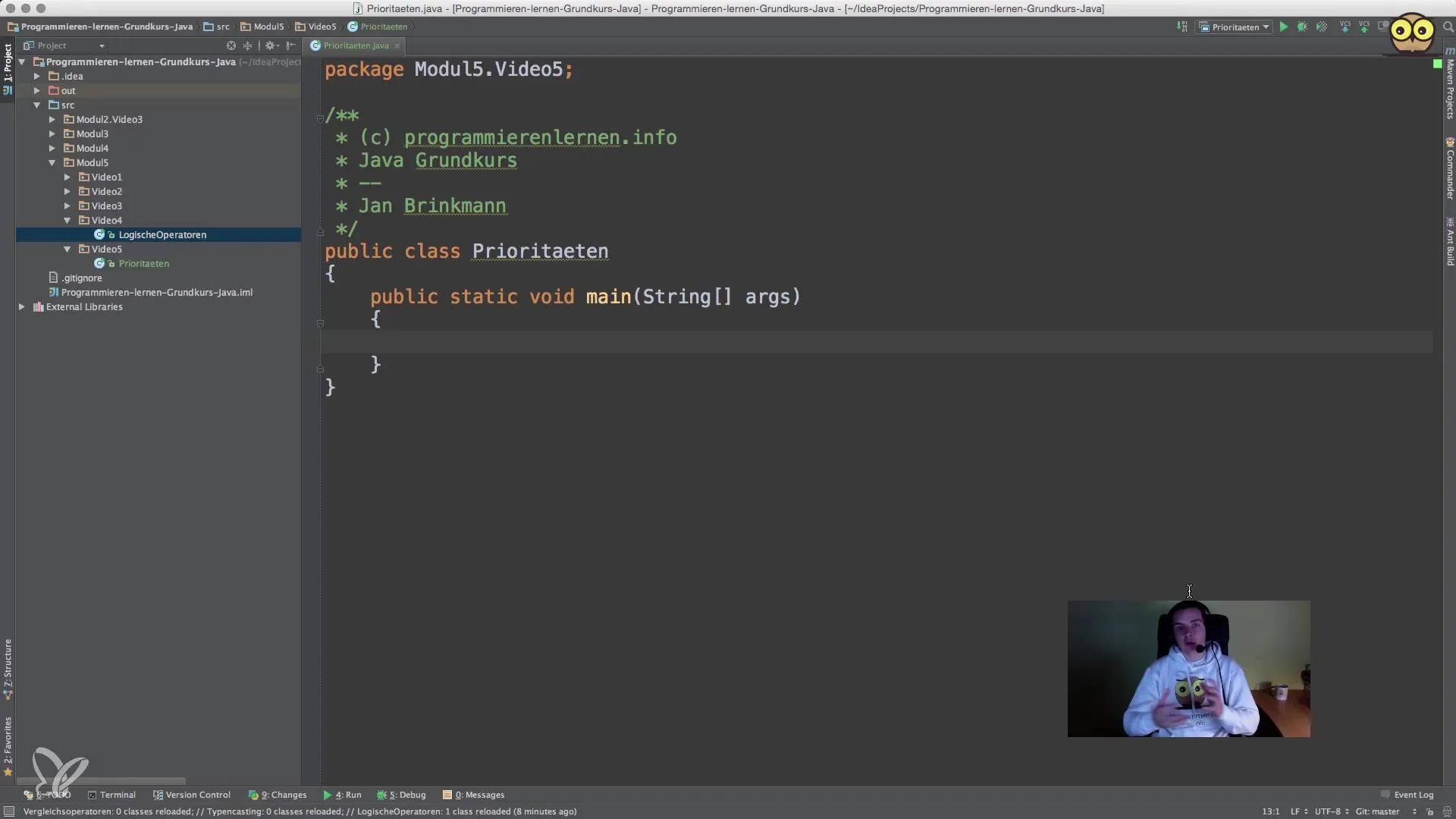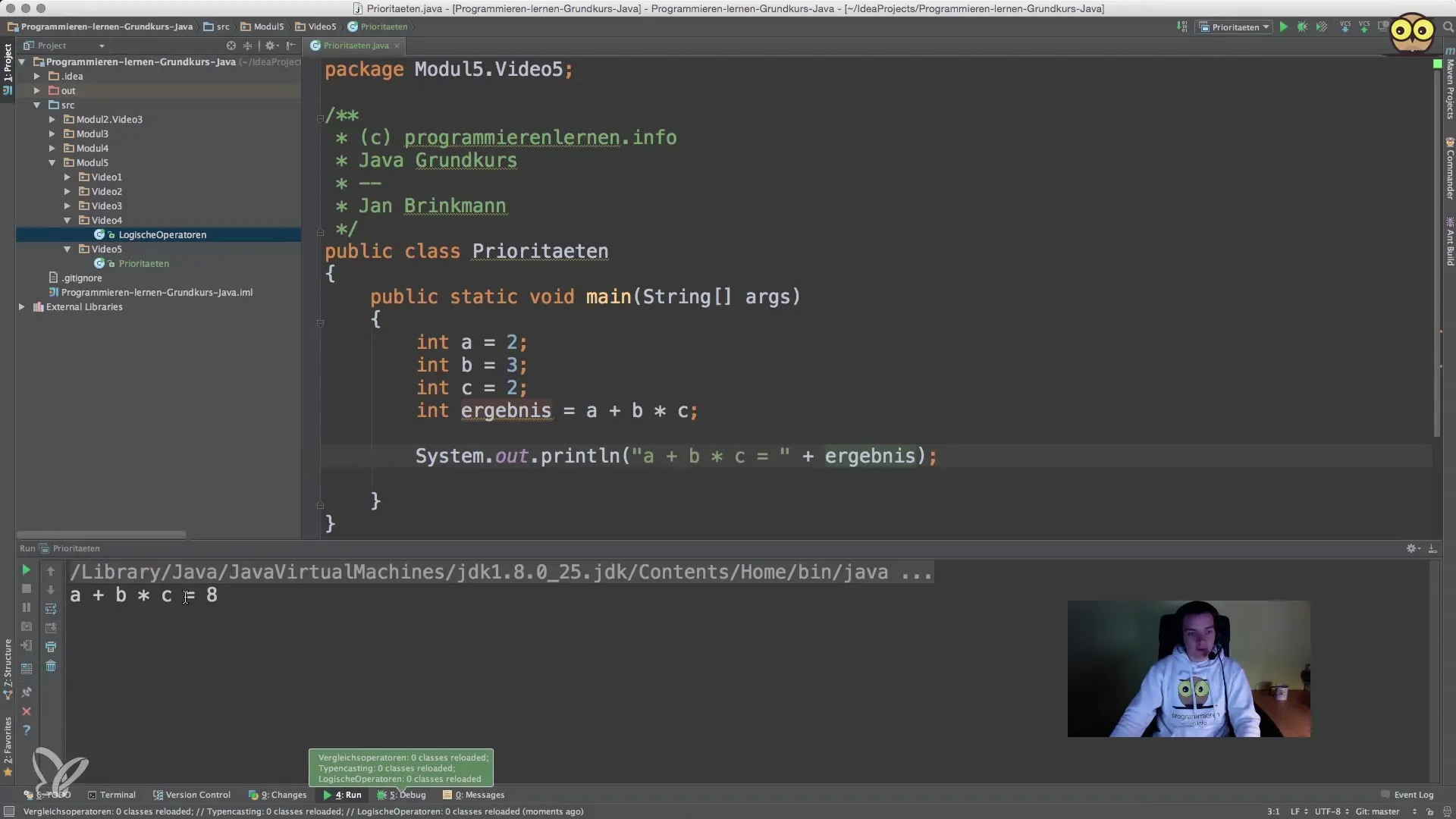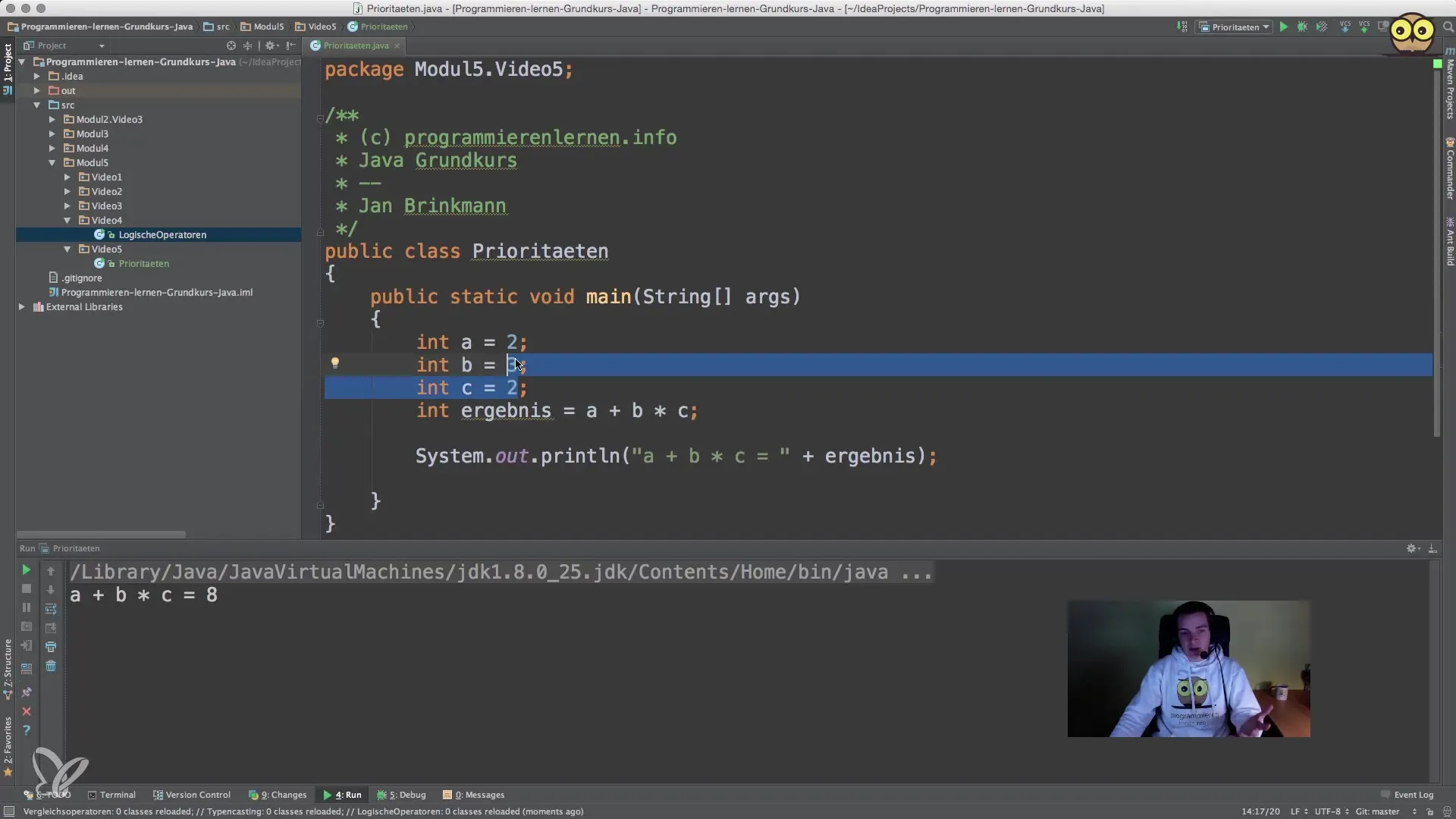Java is a programming language that works with various operators to perform calculations and logical evaluations. In programming, it is crucial to understand the priorities of these operators to avoid errors in expression evaluation. This guide will take you through the fundamental rules of operator precedence and show you how to correctly evaluate expressions in Java.
Key insights
- The point-before-line rule states that multiplications and divisions are evaluated before additions and subtractions.
- Parentheses can be used to change the order of evaluation to what you desire.
- Logical expressions such as "and" and "or" can help formulate complex conditions, where the order of evaluation is significant.
Step-by-step guide
First, let's look at the initial variables. Create a new Java class and define the first variables.
Here you set the variables a, b, and c with the values 2, 3, and 2 in your code.
Now you create a calculation that outputs the result of a + b * c. This is an important example of the point-before-line rule.

Here we use the calculation to show which values are returned.
If you were to execute this calculation, b * c would be calculated first, and then a would be added. The result in this case is 8. It is important to note that multiplication is performed before addition.
If you enclose the same example in parentheses, i.e., (a + b) * c, the priority of the operation changes. Now a + b is calculated first and then multiplied by c.
The result is now 10, as a + b, which is 5, is calculated first, and then multiplied by c, which is 2.
In Java, conditions can also be checked in if statements. Here, the order of evaluation is crucial. You can link two conditions with or.
Run this code and you will see that the output "the statement is true" occurs because both conditions are true.

Change the conditions so that they do not hold true and observe the result. If all conditions are false, the output will not display anything.

If you want to change the desired order of evaluation, you can use parentheses.
In this case, the output "At least one statement is true" will occur, as the second condition is true, even though the first is false.
If you now adjust all conditions so that they are false, you will receive an output that no statement is true. This demonstrates the priority within the parentheses and their significance for the logic.
In summary, it can be said that the correct application of priorities and the clever placement of parentheses influence how expressions are evaluated and thus how your program functions. This is a fundamental aspect that you should not ignore when writing complex conditions or calculations in Java.
Summary – Priorities and Expressions in Java
You have learned the basic concepts of operator precedence in Java. With a solid understanding of point-before-line rules and the use of parentheses, you can effectively evaluate expressions in Java and avoid errors. Always pay attention to how conditions and logical operators are linked to achieve the correct results.
Frequently Asked Questions
How important are parentheses in Java?Parentheses are crucial for determining the order of evaluation and clearly structuring logical expressions.
What happens if I do not observe the order of expressions?Ignoring the fundamentals of calculation can lead to unexpected results and cause the program not to function as desired.
How can I manage more complex conditions?Use parentheses to ensure that evaluation occurs in the desired order and break down complicated expressions into simpler parts.


